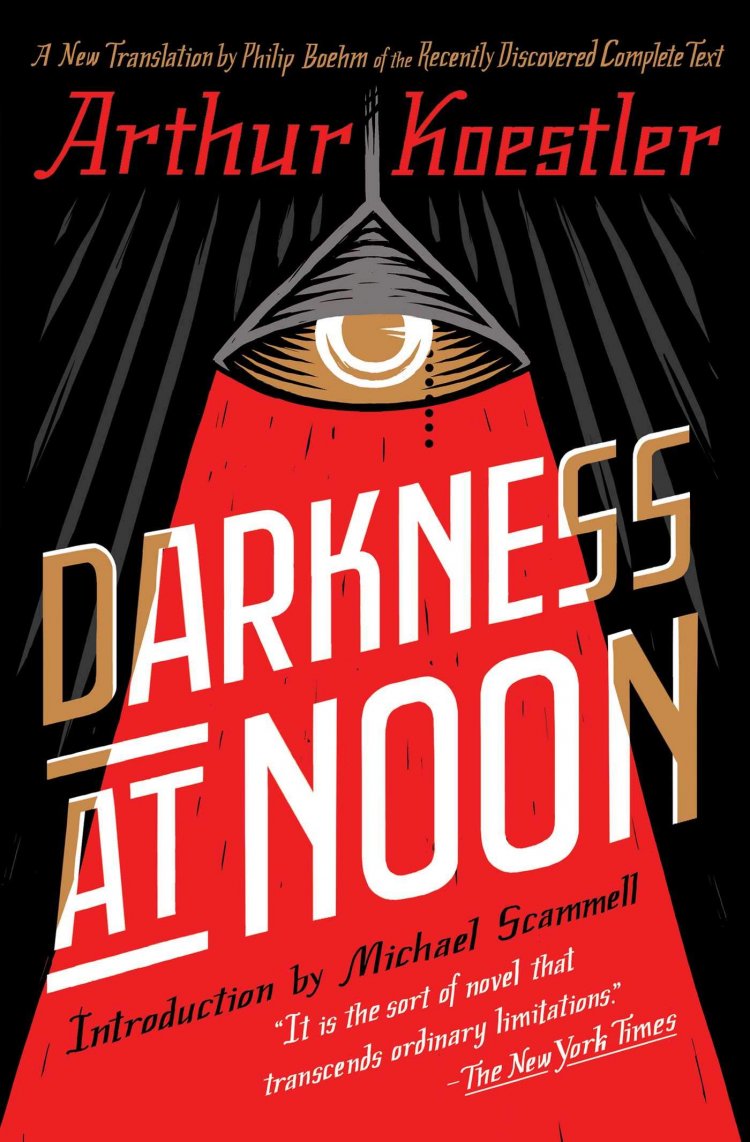Darkness at Noon

Rating: 4.7/5
Author: Arthur Koestler
Paperback: 224 pages
Publisher: Macmillan
Publication Date: 1940
Language: English
Genre: Classic Fiction
ISBN-10: 0099424916
ISBN-13: 978-0099424918
Plot:
Darkness at Noon is set in an unnamed country ruled by a totalitarian government. Rubashov, once a powerful player in the regime, finds the tables turned on him when he is arrested and tried for treason. His reflections on his previous life and his experiences in prison form the heart of this moving and though-provoking masterpiece. The novel is set in 1939 during the Stalinist Great Purge and Moscow Show trials. Despite being based on real events, the novel does not name either Russia or the USSR, and tends to use generic terms to describe people and organizations: for example the Soviet government is referred to as ‘the Party’ and Nazi Germany is referred to as ‘the Dictatorship’. Joseph Stalin is represented by ‘Number One’, a menacing dictator. The novel expresses the author's disillusionment with the Bolshevik ideology of the Soviet Union at the outset of World War II.
Review:
In Darkness at Noon, the Soviet Union’s Communist ideology is shown through the pervading assumption that, in the Fatherland of the Revolution, there is a ‘dictatorship of the proletariat’. At the time of his arrest, Rubashov may harbour doubts about particular methods used by the Communist Party leadership, but he still believes fervently in the underlying ideology of Communism.
While Communist thought proposes that society’s masses are not subject to any one person’s power, the truth of this idea is challenged by, among other things, the cult around the leader ‘No. 1’.
The interrogation tactics that Ivanov and Gletkin use on Rubashov and other inmates might seem senseless and cruel, but these two members of the Party bureaucracy—like all its members—pride themselves on their impeccable logic and rational thinking.
Darkness at Noon is concerned with the laws by which history functions: it asks fundamental questions about whether historical laws should be considered scientific or social, whether historical laws can be used to predict or enforce change.
The defining characteristic of the history of a totalitarian state (like the one in Darkness at Noon) is the political necessity of unquestioned adherence to a singular narrative that benefits the Party.
Adaptations:
The novel was adapted as a stage play by Sidney Kingsley circa 1950, which was later made into a 1955 television production on the American television series Producer’s Showcase.
About the Author:
Arthur Koestler was born in Budapest in 1905. He attended the university of Vienna before working as a foreign correspondent in the Middle East, Berlin and Paris. For six years he was an active member of the Communist Party, and was captured by Franco in the Spanish Civil War. In 1940 he came to England. He wrote The Gladiators in Hungarian, Darkness at Noon in German, and Arrival and Departure in English. He set up the Arthur Koestler Award (now the Koestler Trust) which awards prizes for creative achievements to prisoners, detainees and patients in special hospitals. He died in 1983 by suicide, having frequently expressed a belief in the right to euthanasia.















































